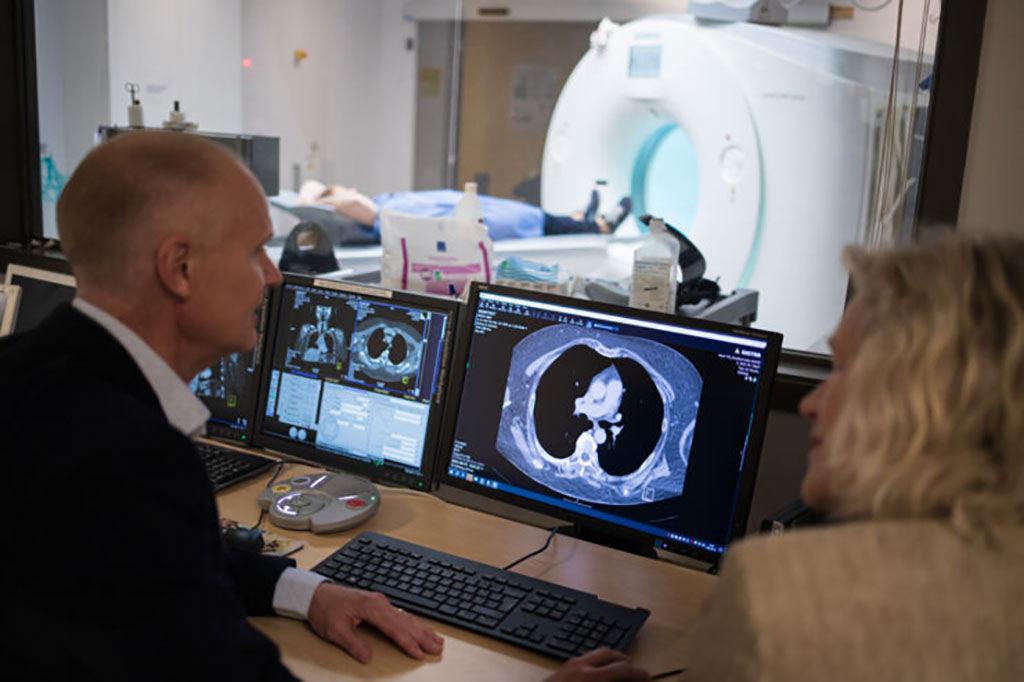Chest CT Scans Can Reveal Immune System Ageing
Posted on 16 Oct 2023
The thymus, a small organ situated in the upper chest, might be more crucial to adult immune health than previously thought. Over time, this glandular tissue in the thymus becomes fatty, a transformation that varies depending on factors such as age, sex, and lifestyle. New findings suggest that the state of the thymus can serve as an indicator of how well the immune system is aging.
Long considered essential for the development of the immune system in children, the thymus tends to shrink and fill with fat after puberty, a phenomenon known as fatty degeneration. Because of this, it was commonly believed that the thymus holds little significance in adulthood. This notion has been questioned by limited studies, mostly animal research, hinting that an active thymus in adults might offer benefits, like stronger resistance to infections and cancer. However, few studies have directly examined the adult thymus until now. Researchers at Linköping University (Linköping, Sweden) took a closer look at the thymus using chest CT scans from over 1,000 Swedish individuals aged 50 to 64. These participants were part of the expansive SCAPIS study, which also includes thorough health assessments and lifestyle evaluations, such as diet and exercise habits. Additionally, the team looked at blood samples to analyze immune cell levels. They found considerable differences in the thymus' state among individuals. Those with a fattier thymus displayed diminished T-cell regeneration. Interestingly, complete fatty degeneration of the thymus was detected in six out of ten participants, occurring more frequently in men and those with abdominal obesity.

The research provides fresh insights by associating the appearance of the thymus with lifestyle choices, overall health, and the immune system. In the immune system's development, the thymus serves as a training ground for T-cells (the "T" signifying "thymus"). Here, T-cells learn how to identify foreign elements like bacteria and viruses, and also how to avoid attacking the body's own cells, preventing autoimmune diseases. However, more investigation is needed to fully understand the health implications of thymus appearance and immune system aging. The research team is now gearing up for further studies involving all 5,000 SCAPIS participants in Linköping to explore whether the thymus' state as shown in CT scans can predict future disease risks.
“We doctors can assess the appearance of the thymus from largely all chest CT scans, but we tend to not see this as very important. But now it turns out that the appearance of the thymus can actually provide a lot of valuable information that we could benefit from and learn more about,” said Mårten Sandstedt, MD, PhD, at Linköping University.
“This association with T-cell regeneration is interesting. It indicates that what we see in CT scans is not only an image, it actually also reflects the functionality of the thymus. You can’t do anything about your age and your sex, but lifestyle-related factors can be influenced. It might be possible to influence immune system aging,” added Lena Jonasson, professor at Linköping University.
Related Links:
Linköping University














